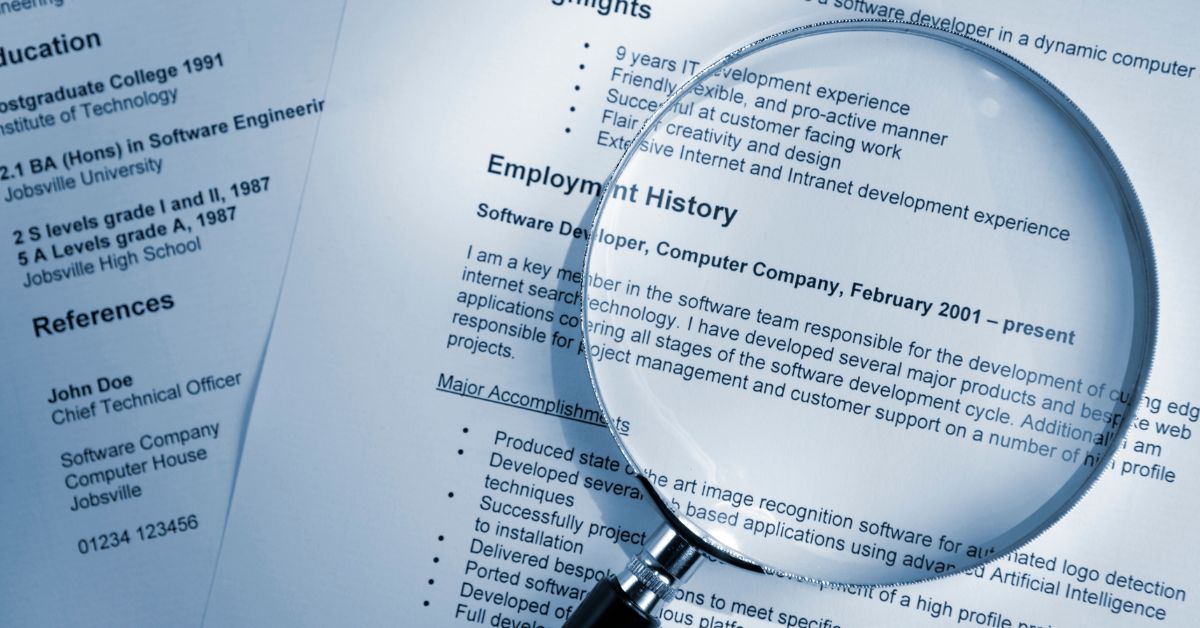Constructing a resume is a tightrope walking experience. You would like the record to be honest about your past and, at the same time, to reflect your profile as the best candidate for the job. One of the dilemmas that candidates often encounter is whether to disclose irrelevant job experience. At this time, it becomes essential to realize the right resume experience format. Through the right work, even seemingly unrelated jobs can support your application.
This blog will go in-depth into the pros and cons of providing irrelevant work experience on the resume for job applications, as well as methods for accentuating transferable and resume skills..
The Importance of Tailoring Your Resume
The truth is that you only have one page with which to sell yourself, and thus, tailoring each single application is of utmost importance. Considering that most recruiting officers spend just a few seconds on the resume, you have to prove in it why you are the right candidate. Applying a proper resume experience format, you will be able to highlight your top achievements. It is the type of work experience that you depict on a resume that will attract the attention of the reader. Just being a recent graduate or changing your career path will not be enough to create such an impression.
What Constitutes Unrelated Work Experience?
Unrelated work experiences refer to jobs or work that are not suitable for the target job. On the other hand, we can say that no direct relation may exist between the position of barista and the marketing department if barista experience is taken into consideration for a marketing position. Nevertheless, we are able to lay stress on problem-solving, multitasking, and customer service skills through the way a resume is constructed, i.e., some of the most important skills that can be required in almost any industry.
Why Consider Adding Unrelated Work Experience?
Instead of deleting those unrelated roles, you should be aware of the fact that they can add value to your profile. Here are some of the arguments for including unrelated work experience to strengthen job application resumes:
1. Highlight Transferable Skills
There is not a single position that couldn’t give you something to learn. Employers give transferable skills great importance. Transferable skills include, among others, leadership, teamwork, communication, and time management. In a well-structured resume, all these skills find themselves under a single heading. “Skills” or “Core Competencies”. The bulk of your work experience will become so much more appealing when you highlight these transferable skills
2. Showcase Your Work Ethic
Though these old jobs do not belong to your desired field, they are your references to your dependability and hardworking nature. What employers need are candidates who, among other things, are punctual and bright at work. Hence, including these jobs in your resume to accompany a job application would be an indication of your reliability and loyalty.
3. Fill in Employment Gaps
Unemployment for an extended period of time can raise concerns. Your resume’s timeline can be consistent if unrelated work experience is included. If you picked the right format to highlight this information, it would not overshadow the actual relevant achievements.
4. Demonstrate Your Versatility and Adaptability
The point of flexibility is communicated to the employer. By sharing that you have different work experiences, you basically show that you are a quick learner when it comes to new procedures, fit well with diverse team cultures, and can handle unexpected situations. In addition, mentioning this in resumes when applying for jobs would be an added value to your resume skills, as it demonstrates adaptability, which is a very important trait.
5. Show Passion and Personal Growth
There are times when unrelated work experience can indicate the candidate’s passion or interest, which would make the candidate more attractive to the recruiter. For instance, being a freelancer in the creative field or volunteering for a non-profit organization would be some of the ways that show a person’s initiative. By using the correct resume experience format to explain these events as personal growth moments, your resume work experience will be strengthened.
How to Include Unrelated Work Experience on Your Resume
It is very crucial in a presentation if you decide to put irrelevant work experience in your resume. The key to keeping your resumes professional and focused when applying for jobs is to stick to the following useful tips.
1. Use a Functional or Hybrid Resume Format
Chronological resumes emphasize job titles and dates, which can undesirably overshadow relevant positions. The emphasis in functional or hybrid resume formats is more on the accomplishments and skills rather than on the work experience. By doing this, you will make the reader think that the work you have done is relevant, even if it is not, because you have put it under the general skill categories.
2. Focus on Transferable Skills
Instead of listing every task completed in your work, highlight the accomplishments and skills that are more suitable for the new job. Say you want to work as a project manager – then you should turn your attention to the activities of schedule coordination, budget management, and team leadership during your past work in retail, which will help you to better manage your future projects. These are some practical examples of work experience to be included in a resume.
3. Use Action-Oriented Language
Employers like action verbs and quantities describing their results. Words such as “managed”, “developed”, “implemented”, and “achieved” all express an impact. Even when mentioning work experience that does not bear direct relevance, being proactive in your language can bring emphasis to your resume and spotlight your resume skills in an expressible manner.
4. Be Selective in What You Include
Your resume doesn’t need to contain every job you have done. Leave out a position if it is absolutely useless or lacks closeness. Pay attention to the unrelated work experience that best suits your desired position and the skills that you want to highlight in your resume. With a more manageable method, it is ensured that your work history will remain persuasive and focused for a resume.
The Bottom Line: Should You Add Unrelated Work Experience?
An unchanging secret to solving only one problem is not available. Irrelevant work experience can be left out or included depending on the job. the professional level, and the way the resume is being done. Listing all kinds of jobs might be a solution if the candidate is entry-level and needs to prove reliability and the quality of the work done. For highly experienced professionals, it might be better to use a hybrid format and a selective approach.
The resume is basically meant to be a brief but exciting story about your qualifications. Considering some irrelevant work experience where it fits and framing it with relevant resume skills are some of the ways through which you can back up your job application resume.
One should compare a resume with a sales piece, which is capable of marketing your profile, not having anything to do with the job list. If you have the right work experience to put on a resume and you know how to sell it, then irrelevant jobs may turn into assets in showing adaptability, commitment, and capability.



